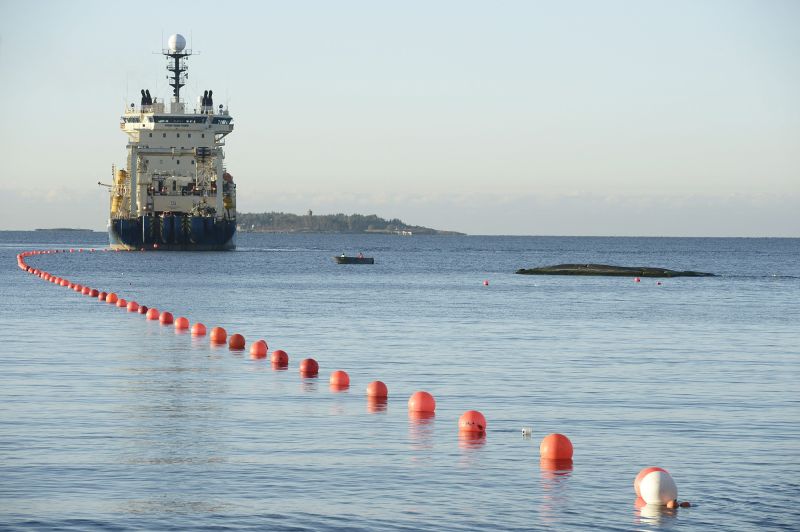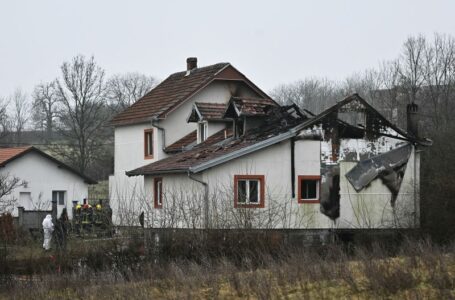GOP lawmakers pledge to investigate Biden’s last-minute pardons: ‘Call them all before Congress’
European officials cry sabotage after two internet cables are cut in the Baltic Sea


European officials are looking toward Russia after two submarine internet cables in the Baltic Sea were suddenly disrupted in an apparent sabotage operation, just weeks after the United States warned that Moscow was likely to target critical undersea infrastructure.
A cable between Lithuania and Sweden was cut on Sunday, according to Telia Lithuania, the telecommunications company that runs the link. Separately, the state-controlled Finnish telecoms company Cinia said one of its cables, which connects Finland and Germany, was disrupted on Monday.
While the exact causes of the incidents are still being investigated, Germany’s Defense Minister Boris Pistorius said he believed it was likely sabotage.
”Nobody believes that these cables were accidentally severed,” he told reporters on Tuesday morning ahead of a ministerial meeting in Brussels, Belgium. “We have to know that, without knowing specifically who it came from, that it is a hybrid action and we also have to assume that, without knowing by whom yet, that this is sabotage,“ Pistorius said.
His comments came after the foreign ministers of Finland and Germany said in a joint statement on Monday evening that they were “deeply concerned” about the severed cable between their nations, and raised the possibility of the incident being part of a “hybrid warfare.”
“The fact that such an incident immediately raises suspicions of intentional damage speaks volumes about the volatility of our times. A thorough investigation is underway,” the statement continued. “Our European security is not only under threat from Russia‘s war of aggression against Ukraine, but also from hybrid warfare by malicious actors.”
European security officials and experts have been warning for months that Russia was waging a hybrid war against the West – accusations prompted by a series of seemingly random arson attacks, hackings and explosions that occurred across multiple European cities in recent months.
These included arson attacks against a bus garage in the Czech capital of Prague, the Museum of Occupation in Riga, Latvia, a warehouse of a Ukrainian company in London and a shopping center in Warsaw, Poland.
Multiple hacking attacks and spying incidents have also been reported in different European countries. As the same time, the European Union has accused Russia and Belarus of weaponizing migration by pushing asylum seekers from third countries to its borders.
The extent of the disruption, if any, caused by the damage to the cables is unclear. Accidents that cause damage to undersea cables are rare, but they do happen, so most providers run services through several different routes to avoid blackouts.
Cinia said in a statement that services running through the C-Lion1 cable that connects Helsinki with Rostock were down, but added that Finland’s international telecommunication connections were routed via multiple links.
The company said a repair vessel had been dispatched to the scene and, while it did not yet know how long it would take to fix the issue, added that it typically takes between five and 15 days for submarine cables to be repaired.
Telia Lithuania’s chief technology officer Andrius Šemeškevičius was quoted by Lithuanian media as saying that the cable that was disrupted – BCS East-West – handled roughly a third of Lithuania’s internet capacity. He added that traffic has been restored since the disruption.











